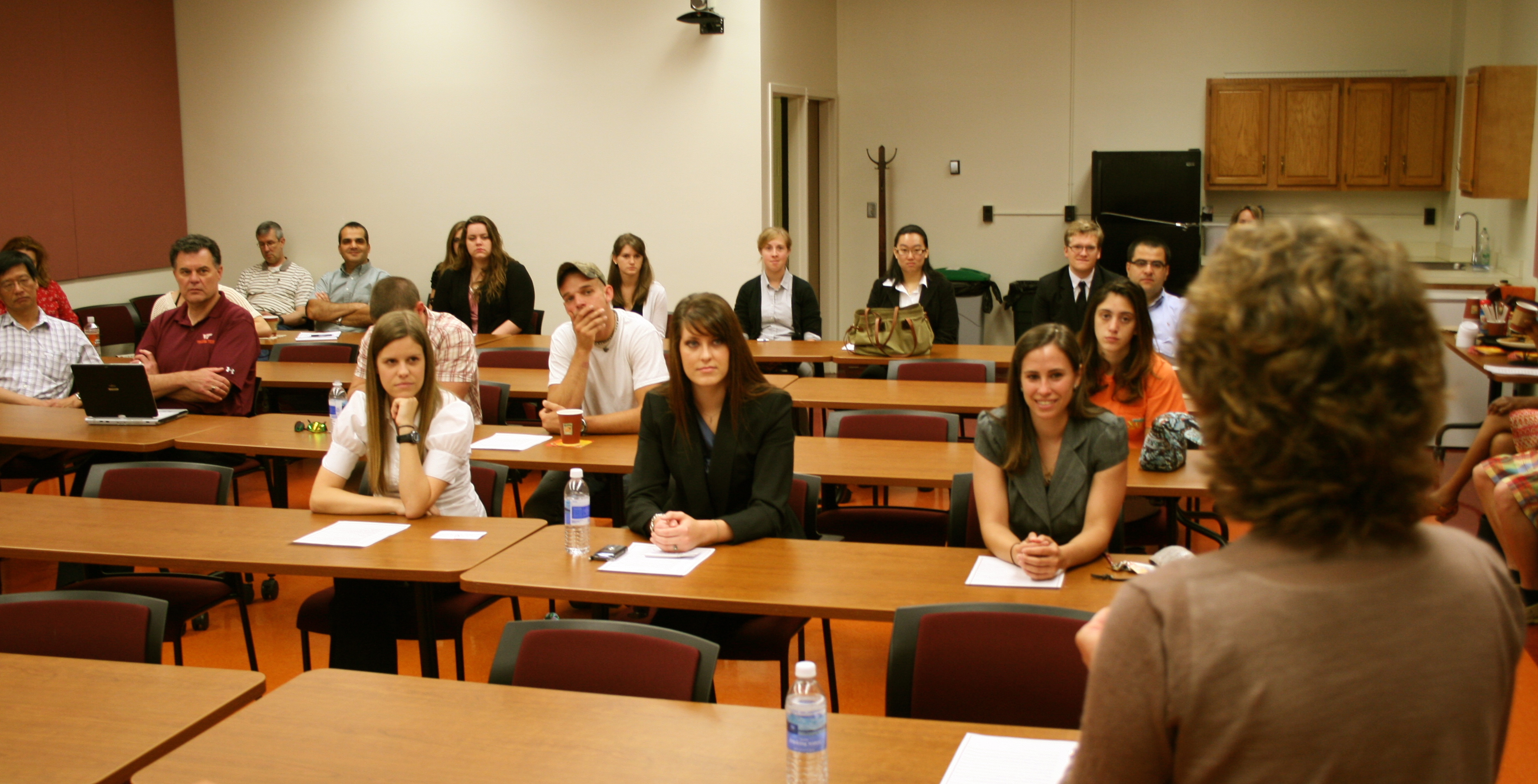John Lee Pratt Animal Nutrition Senior Fellows present research

Ten seniors from the College of Agriculture and Life Sciences presented their research projects on May 3 as part of the John Lee Pratt Animal Nutrition Senior Fellows program. The program promotes the study of animal nutrition across departments throughout the college.
The funding is made available through a bequest of John Lee Pratt, a native Virginian, cattle owner, and, at one time, the CEO of General Motors. The Pratt endowment provides nearly $1 million a year to the college. Of that, about $150,000 is earmarked for scholarships and the senior research fellow program. The remainder is used for research equipment, bringing visiting scholars to Virginia Tech, and for graduate students’ research and stipends.
Saied Mostaghimi, director of the Virginia Agricultural Experiment Station, associate dean for research and graduate studies and the H.E. and Elizabeth F. Alphin Professor, congratulated the students on their work.
“No research outcome is a bad outcome,” he said, adding that learning about the research process is more important than the outcome at this stage of their careers. He cited several reasons for being a strong proponent of undergraduate research. “Research is a huge confidence builder, particularly when you are challenged with questions you want to answer.”
Virginia Lyman of Winchester, Va., a senior majoring in animal and poultry sciences, applied for the program because she wanted laboratory experience. She wanted an edge when she applied to veterinary schools and her strategy paid off — Lyman will be attending the Virginia-Maryland Regional College of Veterinary Medicine in the fall.
Her research examined if leptin, a hormone produced by fatty tissues, had an effect on protein synthesis in the cows’ mammary glands. Her results did not show any statistically significant effects.
“Working on this project gave me a greater appreciation for research, which sometimes can be a long and challenging process,” said Lyman. “I really learned a lot by working with graduate students and the professors.”
The senior fellows program encourages intellectual partnerships between students and professors, said Susan Sumner, associate dean and director of academic programs.
“This is a great opportunity for students to work side-by-side with professors to not only tackle some real-life issues, but also to investigate subjects students are passionate about,” Sumner said.
Many students need the opportunity to do research, said Associate Professor Cindy Wood in animal and poultry sciences. When a project comes along that fits an undergraduate’s training and interests it’s good to encourage students to apply for the senior fellows program, she said.
Wood worked with Karen Park of Fairfax,Va., a senior majoring in animal and poultry sciences.
Park’s research attempted to find out if a subtle connection exists between iron supplementation and lameness in pigs. In their lives, pigs need supplementary iron to prevent them from becoming anemic. Because too much iron can lead to liver damage and joint problems in humans, the question was whether the same problems could occur in pigs.
“We did not see any differences in growth rate or joint damage,” Wood said. “We have not yet had a chance to look at whether the iron supplementation affects the way pigs walk.”
Other students, including Miranda Ritzi of Virginia Beach, Va., a senior majoring in animal and poultry science, focused their research on chicks.
Her mentor, Chasity Cox, a Ph.D. candidate in animal and poultry sciences, said Ritzi looked at the growth and immune response in chicks that were given probiotics before hatching. Probiotics may jump-start the growth and development of the chicks.
The results showed that probiotics stimulated the chicks’ immune system in the gut. But the probiotics did not hinder the growth of the chicks and their ability to hatch.
Between eight to 10 students this year have been accepted as senior fellows, which is nearly double the number from three years ago, Sumner said. Students can work with any faculty member within the college. Students receive a $3,000 stipend for the research and faculty members receive notifications that they get $2,000, which is spent on supplies, student travel, and other related research activities.




